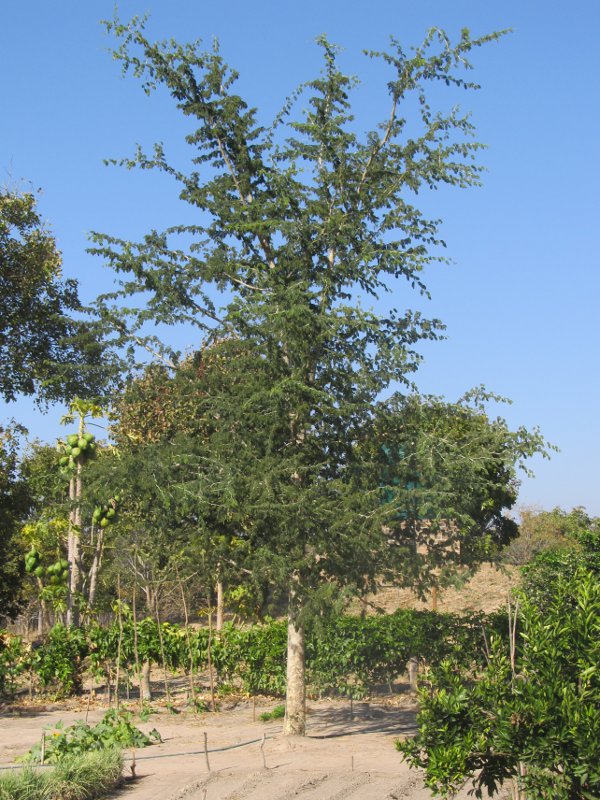The Musangu tree, scientifically known as Faidherbia albida, is a remarkable species native to Zambia, valued not only for its agricultural benefits but also for its traditional uses and medicinal properties.
This blog post delves into the diverse roles of Musangu in Zambian culture and health.
Traditional Uses
Musangu has a variety of traditional uses in Zambia. The tree’s wood is commonly utilized for firewood, charcoal production, and construction materials such as lumber and posts.
Its durable timber is highly sought after for building purposes, making it an important resource for local communities.
Additionally, Musangu serves as an effective windbreak, protecting crops from harsh winds and contributing to a more stable agricultural environment.
Medicinal Properties
Musangu is also recognized for its medicinal properties. Traditionally, various parts of the tree are used in herbal remedies. The leaves and bark are often employed to treat ailments such as colds and sore throats. For instance, a mixture of honey and lemon juice with Musangu extracts is used as a soothing remedy. This highlights the tree’s role not only in agriculture but also in promoting health within local communities.
Soil Fertility Enhancement
Beyond its traditional uses, Musangu significantly improves soil fertility through its unique leaf-shedding behavior. During the rainy season, the tree drops its leaves, enriching the soil with organic matter and nitrogen.
This natural process reduces the need for synthetic fertilizers, making it an ideal choice for smallholder farmers seeking sustainable practices.
Crop Production Benefits
Crops such as maize, beans, and groundnuts thrive when grown under Musangu trees. The enriched soil conditions lead to increased yields, with maize production potentially doubling or tripling in the presence of mature Musangu trees. This symbiotic relationship enhances food security for local farmers.
Drought Resilience
Musangu’s deep root system allows it to access moisture from deeper soil layers, making it particularly valuable in drought-prone areas.
By maintaining soil moisture levels, Musangu ensures that surrounding crops remain hydrated during dry spells.
Conclusion
In summary, the Musangu tree is a vital resource in Zambia, offering numerous benefits ranging from traditional uses and medicinal properties to significant agricultural advantages.
By integrating Musangu into farming systems, communities can enhance soil fertility, improve crop yields, and promote health while fostering environmental sustainability.
Embracing this native tree can lead to a more resilient and productive future for Zambian agriculture and society as a whole.
We have musangu seedlings for sale at Green gold Social in Chongwe K10 per tree. Make your order on WhatsApp 0965976490.


